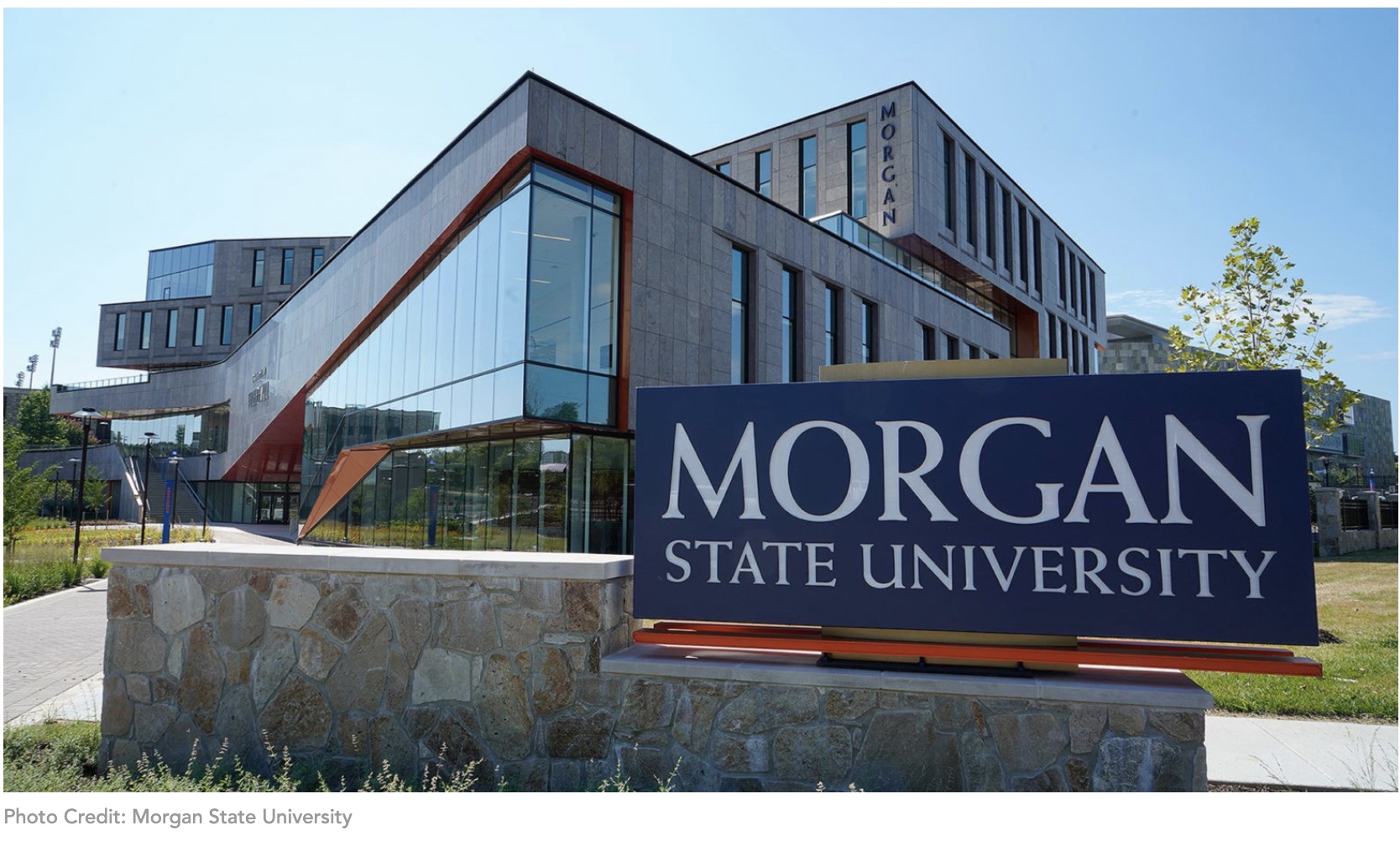Courtesy of Morgan State University
Four Morgan State University students have been selected to participate in the 2023 University Innovation Fellows Program, run by Stanford University’s Hasso Plattner Institute of Design, also known as the (d.school). With Morgan’s latest cohort of University Innovation Fellows, graduate students Cierra Robinson (Higher Education Administration) and Bello Mahmud (Civil Engineering); along with undergraduate senior Gbolahan Abioye (Computer Science) and junior Tomisin Adebari (Biology), will represent Morgan at national events as advocates for policy changes that can help support a nation of young people who possess an entrepreneurial mindset, a passion for solving society’s most pressing problems, and the necessary attitudes, skills and abilities to make a difference in the world.
In this annual, highly competitive, cohort-based program, Fellows represent the student voice in the global conversation about the future of higher education. As student leaders, the Fellows become familiar with their schools’ innovation and entrepreneurship ecosystem, working closely with faculty, administrators and community stakeholders. Based on their deep understanding of the learning opportunities available at their schools, Fellows are empowered to design and implement activities to enhance the educational landscape, creating student innovation spaces, entrepreneurship organizations and new courses. Through project-based classes, Fellows can gain skills and perspectives that they take back to their primary area of focus, fueling innovation or launching entirely new ventures in new work environments.
For their project for the program, the 2023 Morgan Fellows’ created an Innovative Teach Lab, which enabled a comprehensive approach to equipping educators with the necessary skills and knowledge to integrate technology into their teaching methods effectively. The lab includes professional development programs for educators, resource management to enhance teaching methods, support for a dynamic learning environment of ongoing training, promotion of equitable learning, and maintenance of strategic partnerships to support and strengthen the training initiatives.
Fellows are nominated by their universities’ faculty and administrators as individuals or teams of students and are selected through an application process each year. Following acceptance into the program, Fellows participate in a six-week online training experience. During training, Fellows learn to analyze their campus ecosystems and identify opportunities for change related to innovation, entrepreneurship, design thinking and creativity. They work to understand the needs of peers across disciplines and the perspectives of faculty and administrators; then, they apply the new knowledge and perspectives to design of new educational opportunities for their peers. After training, Fellows implement the projects they crafted. They continue to serve as change agents and leaders at their schools and beyond.
This year, 261 students from 68 universities in 15 countries participated in the program. With the addition of the new Fellows, the program has trained more than 3,100 students since its creation.

